Odyssey 5.1-115
I suppose the second council of the gods, echoing the opening one in Book 1, is a bit of a concession from Homer. Now we’re getting back to the main plot. Even Zeus expresses his exasperation at Athena’s posing the question of Odysseus again, and he seems to allude to the fact that they’d already decided a plan of action. Remember how hush hush and strategic that meeting had been, taking advantage of the absence of Poseidon. Evidently he’s still gone. But in this way Homer rather forces the question: what has the Telemachy, the story of Telemachus’ journey and the stories told by Nestor and Menelaus and Helen along the way, served the tale he himself means to tell? I for one find immense richness in the encounters we have witnessed, and I cannot imagine being without them. I am still thinking about Proteus counting his seals. But what do you think? We haven’t even heard from Odysseus yet, the man in question from line 1. But we have heard about him, broad strokes and little hints. Does the Odyssey need the Telemachy (Books 1-4)?
The same phrase and prosodic figure, νῦν αὖ παῖδ’ ἀγαπητὸν, with three straight circumflexes, occurs twice in Penelope’s speeches at the end of Book 4, and then again immediately at the beginning of Book 5, this time in the mouth of Athena at the council of the gods (5.18). In such a context it is impossible not to hear Athena’s use as a quotation and an evocation, of Penelope’s recent and peculiar prosodic usage. Athena also is speaking of Telemachus, but makes no further allusion to Penelope. All the same her evocation is unmistakable, not only in her same words but their distinctive prosodic music. It is Penelope’s emotive motif surfacing in Athena’s voice.
Surely the echoing of the consecutive circumflected contonations, the prosodic inflection we observe and register here, reflects a real connection by design between the characters of Penelope and Athena, and indeed the Homeric performer himself. Breath and harmony unite these characters with a tactile immediacy that seems only possible at the musical level of the representation of the psyche. One cannot see bottom for the significance of this signature echoing for one’s assessment of the composer and the composition, and the kind of mimesis they are trying to achieve. The three straight circumflexes take you there, immediately, in the way a distinctive line of melody invokes every time in history that it has ever been sounded or sung. Such unities of representation seem only to be possible through music, and it is essential that Homer’s composition be recognised at last for its musical art and intention.
One could wish for a true Homeric voice, rather than mine, for this passage. Might as well listen to my Greek all the same. The descriptive poetry around Calypso’s cave means to take you there, to hear her singing, to breathe the aromas. Homer has not attempted anything like that in the preceding books. Perhaps as Odysseus finally comes on stage, some effort is needed to transport us and convince us. The world of Telemachus, by contrast, has been altogether too realistic, uncannily familiar, a transactional world that needs no special effects to ring true to our modern, post- (or inter-) catastrophic experience.
In Greek:


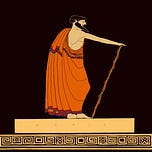

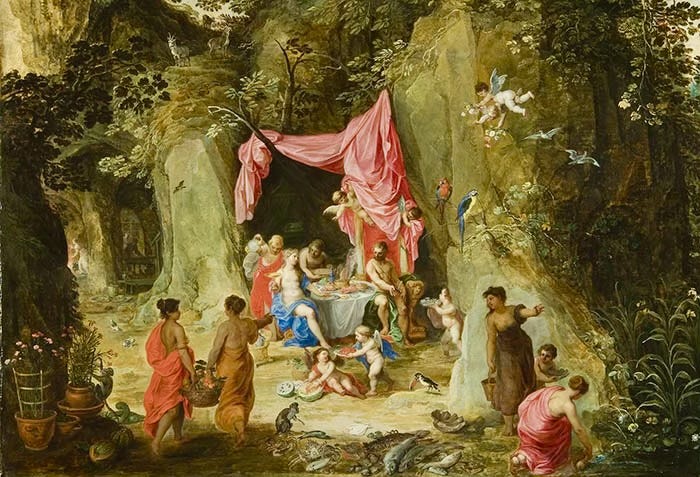


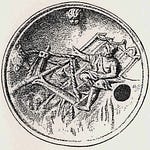

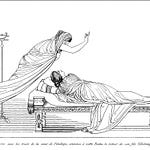
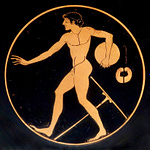


‘Singing Long Vowels in a Lovely Voice’: Homer in English